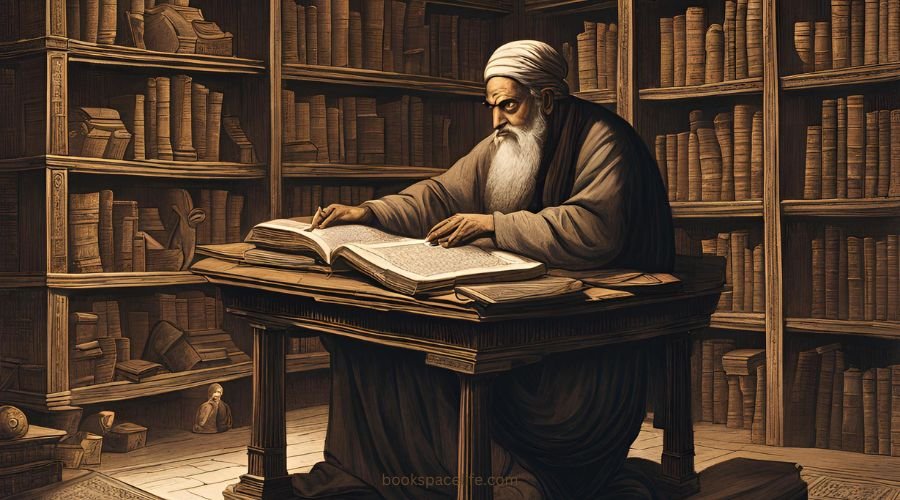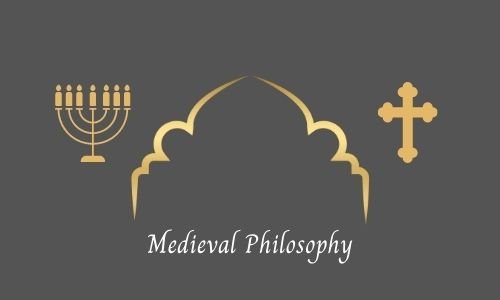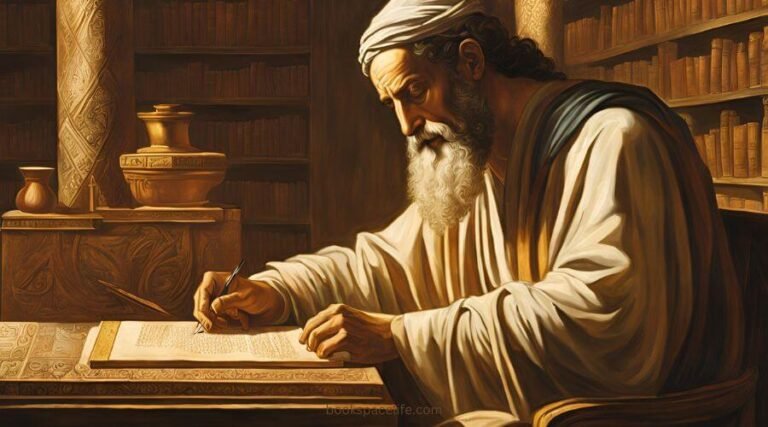Saadia Gaon
Saadia Gaon: The Father of Jewish Philosophy
Saadia Gaon (882–942 CE), also known as Saadia ben Joseph, was a prominent Jewish philosopher, rabbi, and scholar, widely regarded as the father of Jewish philosophy.
Living during a formative period for Jewish intellectual life, Saadia pioneered efforts to synthesize Jewish theology with philosophical reasoning, creating a foundation for rationalist approaches within Judaism.
His work had a profound impact on Jewish thought, particularly through his philosophical treatises, translation work, and leadership of the Sura Academy in Babylon. This blog post explores Saadia Gaon’s life, travels, philosophical contributions, and lasting influence.
Table of Contents
(1) Early Life and Education
Saadia Gaon was born in 882 CE in Fayyum, Egypt, into a Jewish family with strong religious roots.
Growing up in Egypt, he had early access to both Jewish and Islamic scholarship, as Egypt was part of the Islamic Abbasid Caliphate at the time.
From a young age, Saadia showed an aptitude for learning, especially in Jewish texts such as the Torah, Talmud, and Midrash.
He also engaged with the works of Islamic philosophers and scholars, which greatly influenced his intellectual development.
Saadia was a self-taught linguist, mastering Hebrew, Arabic, and possibly Aramaic. He was especially interested in Hebrew grammar, which was poorly understood at the time.
He began writing at an early age, and one of his earliest works, Agron, was a Hebrew dictionary and grammar that helped clarify the structure of the Hebrew language for future scholars.
This early work established him as a pioneer in Hebrew linguistics and marked the beginning of a prolific scholarly career.
(2) Travels and the Path to Leadership
In his early thirties, Saadia moved to the region of Babylon (modern-day Iraq), a center of Jewish scholarship.
His journey to Babylon marked a turning point, as he quickly gained recognition for his intellectual acumen and commitment to defending rabbinic Judaism.
In Babylon, Saadia immersed himself in the Talmudic academies of Sura and Pumbedita, which were the premier institutions of Jewish learning at the time.
By 928, his reputation as a scholar led to his appointment as the head of the Sura Academy, one of the two principal Talmudic academies in Babylon.
This position, known as “gaon,” solidified his authority and influence within the Jewish community.
As Gaon, Saadia faced internal challenges, including disputes with other scholars, particularly with the Exilarch David ben Zakkai, the head of the Jewish community in Babylon.
However, he remained in this role for several years, during which he defended rabbinic authority and promoted rigorous study of Jewish texts.
(3) Saadia’s Philosophy and Theological Contributions
Saadia’s most significant philosophical work, Emunot ve-Deot (The Book of Beliefs and Opinions), remains a foundational text in Jewish philosophy.
Written in Arabic in 933, it was later translated into Hebrew and became one of the earliest comprehensive works on Jewish theology and philosophy.
In Emunot ve-Deot, Saadia sought to systematize Jewish beliefs, using rational arguments to support the tenets of Judaism.
(i) Rational Defense of Faith
One of Saadia’s main objectives was to defend Judaism against both internal sectarian divisions and external intellectual challenges.
This era saw the rise of sects within Judaism, such as the Karaites, who rejected rabbinic authority and focused solely on the written Torah.
Saadia used philosophical arguments to reinforce rabbinic teachings and oppose the Karaite movement, advocating for the importance of oral tradition alongside the written Torah.
Saadia also aimed to protect Judaism from the influence of Islamic and Greek philosophies, which were widespread in the Islamic world.
He believed that faith and reason were complementary, rather than contradictory, and he employed Greek philosophical concepts, especially those of Aristotle, to explain Jewish beliefs.
This approach represented a novel method in Jewish thought, one that enabled Saadia to establish a rational foundation for fundamental beliefs like the existence of God, divine justice, and human free will.
(ii) The Nature of God and Creation
A major theme in Saadia’s philosophy is the nature of God and creation. He argued that God created the world from nothing (creatio ex nihilo), a principle that aligned with the Biblical account and countered the Aristotelian belief in an eternal universe.
Saadia contended that God’s creation demonstrated divine wisdom and intentionality, which could be understood through reason.
Saadia also tackled questions about divine attributes. He held that while God possesses certain attributes—such as power, wisdom, and justice—these should be understood as aspects of God’s actions rather than as separate qualities.
In his view, attributing distinct qualities to God could imply that God is divisible, which would contradict the concept of divine unity, a cornerstone of Jewish monotheism.
(iii) Free Will and Divine Justice
One of the most intricate issues Saadia addressed was the relationship between free will and divine justice.
He believed that human beings possess free will, which allows them to choose between good and evil.
For Saadia, free will was essential to the concept of divine justice: God’s justice would be meaningless if humans were not responsible for their actions.
To explain the existence of suffering and evil in a world governed by a just God, Saadia argued that adversity and hardship serve as tests, providing opportunities for personal growth and for individuals to prove their faith and righteousness.
(iv) The Afterlife and Resurrection
Another significant topic in Saadia’s philosophy is his belief in the afterlife and bodily resurrection, concepts that he argued were essential to Jewish theology.
He maintained that the soul is immortal and that righteous souls would be rewarded in the world to come.
Saadia also strongly affirmed the traditional Jewish belief in resurrection, which he saw as a divine promise to Israel.
These ideas on the afterlife and resurrection not only reinforced the hope and faith of Jewish communities but also positioned Judaism in dialogue with other religious beliefs about life after death.
(v) Saadia’s Contributions to Jewish Linguistics and Biblical Interpretation
Saadia’s work extended beyond philosophy to linguistic studies and biblical interpretation. Recognizing that most Jews in the Islamic world spoke Arabic, he sought to make Jewish texts more accessible.
He translated the Hebrew Bible into Arabic, a translation known as the Tafsir, accompanied by his own commentaries.
This translation became crucial for Jews who could no longer read Hebrew fluently and helped preserve Jewish knowledge and heritage for Arabic-speaking Jews.
Saadia’s commentaries combined linguistic analysis with philosophical insights, providing a model for interpreting the Bible in ways that harmonized with both rationality and faith.
His emphasis on grammar and philology in understanding the biblical text laid the groundwork for future Jewish scholarship, which would continue to develop these methods in the Middle Ages.
(4) Saadia’s Legacy and Influence
Saadia Gaon’s influence reached far beyond his lifetime. His rationalist approach to Jewish philosophy and his method of interpreting Jewish texts through reason and faith shaped the future of Jewish thought, especially during the medieval period.
Later Jewish philosophers, including Maimonides, were profoundly influenced by Saadia’s integration of Greek philosophy with Jewish theology.
In his fight against the Karaite movement, Saadia helped to solidify the authority of rabbinic Judaism, which emphasized the role of the Talmud and oral tradition alongside the written Torah.
His arguments against Karaism provided the intellectual foundation for defending rabbinic Judaism, which would dominate Jewish religious life in the centuries that followed.
Moreover, Saadia’s belief that reason and revelation could coexist became a key theme in Jewish philosophy, influencing thinkers across different Jewish communities.
His emphasis on the use of reason to understand religious beliefs inspired future Jewish philosophers to engage with contemporary intellectual movements without compromising their faith.
(5) Conclusion
Saadia Gaon’s life and work represent a turning point in Jewish intellectual history. By synthesizing Greek philosophy with Jewish theology, Saadia offered a rational defense of Jewish beliefs, laying a foundation for future philosophical inquiry.
His writings not only addressed complex theological issues but also responded to the needs of a diverse Jewish community spread across the Islamic world.
Through his philosophical works, biblical commentaries, and leadership, Saadia established himself as a vital figure in the history of Jewish thought.
Today, Saadia Gaon is remembered as a scholar who defended the integrity of Judaism and introduced new ways of thinking about faith.
His legacy continues to influence Jewish philosophy, as his efforts to harmonize reason with revelation remain relevant to modern discussions about the role of philosophy in religious life.
Saadia’s life and teachings remind us of the enduring power of intellectual engagement in the pursuit of spiritual understanding and religious identity.
Through his work, Saadia left an indelible mark on Jewish thought, inspiring generations to approach their faith with both devotion and reason.








